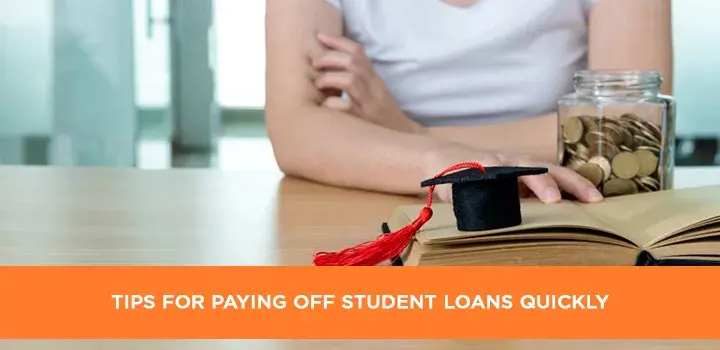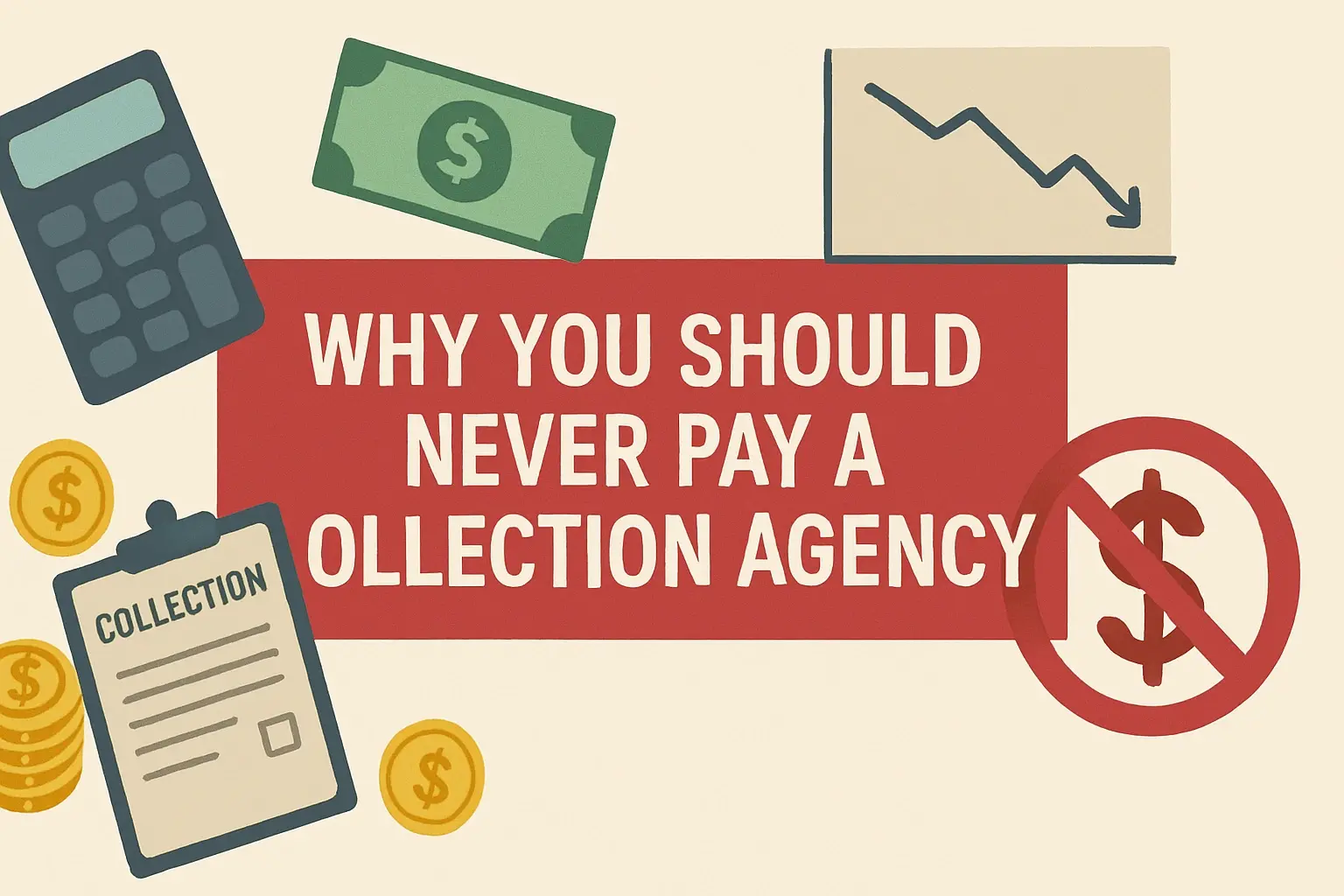-
Posted on: 21 Dec 2022

-
Understanding the student loan grace period is crucial for managing your education debt. This essential timeframe allows borrowers a breathing room after graduation or leaving school before federal student loan payments officially begin, offering a vital opportunity to plan your finances.
What Exactly is a Student Loan Grace Period?
A student loan grace period is a specific timeframe after you graduate, leave school, or drop below half-time enrollment during which you are not required to make payments on your federal student loans. It’s essentially a grace period, a buffer zone, designed to give you time to adjust to life after education and prepare for the financial responsibilities of loan repayment. This period is a standard feature of most federal student loans, providing a critical window for financial planning before the repayment cycle begins.
For many students, the transition from full-time education to the workforce or other post-graduation paths can be abrupt. The grace period acknowledges this transition and offers a much-needed reprieve. It's not a cancellation of your loan obligations, but rather a postponement of the immediate payment requirement. Understanding this concept is the first step in effectively managing your student loan debt and avoiding potential pitfalls.
Types of Student Loans and Their Grace Periods
The specifics of a student loan grace period can vary depending on the type of loan you have. Federal student loans, which are the most common type, generally have standardized grace periods. However, private student loans often have different terms, and some may not offer a grace period at all.
Federal Student Loans
Federal student loans are issued by the U.S. Department of Education and come with borrower protections and standardized repayment options. The grace period is a key feature for these loans.
Direct Subsidized Loans and Direct Unsubsidized Loans (Stafford Loans)
These are the most common types of federal student loans for undergraduate and graduate students. For both Direct Subsidized and Direct Unsubsidized Loans, borrowers typically receive a six-month grace period. This grace period begins after you graduate, leave school, or drop below half-time enrollment.
Direct PLUS Loans (Grad PLUS and Parent PLUS)
Direct PLUS Loans, which are available to graduate or professional students (Grad PLUS) and parents of dependent undergraduate students (Parent PLUS), generally do not have a grace period. However, there are exceptions. For Grad PLUS loans first disbursed on or after July 1, 2008, borrowers are typically granted a six-month grace period after they cease to be enrolled at least half-time. For Parent PLUS loans, repayment usually begins immediately after the loan is fully disbursed, unless the student on whose behalf the loan is made is still enrolled at least half-time.
Private Student Loans
Private student loans are offered by banks, credit unions, and other financial institutions. Their terms, including grace periods, are set by the lender and can vary significantly.
- Varying Terms: Some private lenders may offer a grace period, often similar to federal loans (e.g., six months).
- No Grace Period: Many private loans require payments to begin as soon as you graduate or leave school, or shortly after the first disbursement.
- Interest Accrual: It's crucial to understand how interest is handled during any grace period offered by a private lender, as it often accrues and capitalizes (is added to the principal balance) even if payments aren't required.
Recommendation: Always carefully review your private loan agreement or contact your lender directly to confirm the terms of your grace period, if any, and how interest is handled.
How Long is a Student Loan Grace Period?
For most federal student loans, the grace period is a standardized six months. This duration applies to Direct Subsidized Loans and Direct Unsubsidized Loans. This six-month window is designed to provide a reasonable amount of time for borrowers to get their affairs in order after leaving school.
While six months is the standard, it's important to remember that this applies primarily to federal loans. Private lenders have the discretion to set their own terms. Some may offer a similar period, while others might have shorter grace periods or none at all. Always verify the exact length of your grace period with your loan servicer or lender.
When Does the Grace Period Actually Start?
The clock on your student loan grace period begins ticking on a specific date, which is triggered by certain events. Understanding these triggers is vital to accurately anticipate when your repayment obligations will commence.
The grace period typically starts on the date you:
- Graduate from your program of study. This is the most common trigger.
- Withdraw from your program of study. If you decide to leave school before completing your degree.
- Drop below half-time enrollment. This means you are no longer taking enough credits to be considered a half-time student by your institution. The definition of half-time varies by school, so it's important to know your school's policy.
Important Note: For some federal loans, like Grad PLUS loans, the grace period might start after you cease to be enrolled at least half-time, even if you haven't officially withdrawn. Always confirm the precise start date with your loan servicer. The exact date your grace period begins is critical because it determines the end date of this non-payment period.
What Happens During the Grace Period?
The grace period is a unique phase in the life of a student loan. While you are not required to make payments, several important things are happening, and there are actions you can take to prepare for repayment.
No Required Payments
The most significant aspect of the grace period is that you are not obligated to make monthly principal and interest payments. This is the primary benefit, allowing you to focus on post-graduation life without immediate financial pressure from your student loans.
Interest Accrual (Crucial Distinction)
This is where the distinction between subsidized and unsubsidized loans becomes critically important. We'll delve deeper into this in the next section, but it's essential to note that interest *can* accrue during the grace period, even if you aren't making payments.
Loan Servicer Communication
During your grace period, your loan servicer will likely be in contact with you. They will send information about:
- The end of your grace period.
- Your repayment options.
- Your monthly payment amount.
- How to make payments.
- Information about loan consolidation or other repayment plans.
It is imperative to read all communications from your loan servicer carefully and respond promptly if they request information from you. Failure to do so could lead to missed deadlines or missed opportunities.
Opportunity to Prepare
The grace period is an excellent opportunity to get ahead of your loan repayment. Consider using this time to:
- Create a budget: Understand your income and expenses to determine how much you can realistically afford to pay towards your loans.
- Explore repayment options: Research different federal repayment plans (e.g., Income-Driven Repayment plans) to find one that best suits your financial situation.
- Make voluntary payments: If you have the financial means, consider making interest-only payments or even paying down some of the principal. This can significantly reduce the total amount of interest you pay over the life of the loan.
- Consolidate your loans: If you have multiple federal loans, you might consider consolidating them into a Direct Consolidation Loan. This can simplify your payments and may offer access to different repayment plans.
Does Interest Accrue During the Grace Period?
This is one of the most frequently asked questions about student loan grace periods, and the answer depends entirely on the type of federal loan you have. This distinction is crucial for understanding the total cost of your loan.
Subsidized Loans
For Direct Subsidized Loans, the U.S. Department of Education pays the interest that accrues during certain periods, including the grace period. This means that if you have subsidized loans, the principal balance of your loan will not increase due to interest during your six-month grace period. This is a significant benefit that can save you money over time.
Unsubsidized Loans
For Direct Unsubsidized Loans (and Direct PLUS Loans that have a grace period), interest *does* accrue during the grace period. Even though you are not required to make payments, the interest continues to accumulate. At the end of the grace period, this accrued interest will be added to your principal balance. This process is called capitalization. Capitalization means you will then pay interest on the interest, increasing the total amount you owe and the total interest paid over the life of the loan.
Private Loans
For private student loans, whether interest accrues during the grace period is determined by the lender and the terms of your specific loan agreement. Many private lenders do not pay the interest during the grace period, and it will be capitalized, similar to unsubsidized federal loans.
Example of Interest Accrual (2025 Data)
Let's consider an example for 2025. Suppose you have a $10,000 Direct Unsubsidized Loan with an interest rate of 6.53% (a typical rate for undergraduate unsubsidized loans in 2024-2025, which is likely to remain similar for 2025-2026). The daily interest accrual would be approximately $1.79 ($10,000 * 0.0653 / 365). Over a six-month grace period (approximately 182 days), this would amount to about $325.98 in accrued interest. This $325.98 would then be capitalized, increasing your loan balance to $10,325.98, and you would start paying interest on this new, higher balance.
Actionable Advice: If you have unsubsidized federal loans or private loans, consider making interest-only payments during your grace period. This will prevent capitalization and reduce the total amount of interest you pay. For 2025, proactively paying around $300-$400 during your grace period could save you a significant amount in the long run.
Strategies for Managing Your Student Loan Grace Period
The grace period is a valuable tool, but it requires proactive management to maximize its benefits and avoid future financial strain. Here are some effective strategies for navigating this period:
1. Confirm Your Grace Period Details
Don't assume you know the exact start and end dates. Contact your loan servicer (for federal loans) or your private lender immediately to confirm:
- The exact date your grace period begins.
- The exact date your grace period ends.
- Whether interest is accruing on your loans during this period.
- Your expected monthly payment amount after the grace period ends.
2. Understand Your Loan Types
Know which of your loans are subsidized and which are unsubsidized. This will dictate your strategy for handling interest. As discussed, subsidized loans don't accrue interest during the grace period, while unsubsidized loans do.
3. Budget for Repayment
This is perhaps the most critical step. Before your grace period ends, you should have a clear understanding of your post-graduation income and expenses. Create a realistic budget that includes your projected student loan payments. This will help you avoid being caught off guard when payments begin.
- Estimate your income: Based on your job offer or expected earnings.
- Track your expenses: Including rent, utilities, food, transportation, and other living costs.
- Calculate your debt-to-income ratio: To understand how your loan payments will fit into your overall financial picture.
4. Consider Making Voluntary Payments
If your financial situation allows, making payments during the grace period can be a smart move, especially for unsubsidized loans where interest is accruing. Even small payments can make a difference:
- Interest-Only Payments: Paying just the accrued interest will prevent it from being capitalized onto your principal balance. This directly reduces the total interest you'll pay over the loan's life.
- Principal Payments: If you can afford more, paying down the principal will further reduce your total interest paid and shorten your repayment term.
Example: If you have $20,000 in unsubsidized loans with a 6.53% interest rate, the monthly interest is about $108.83. Paying this amount each month during your grace period will prevent approximately $653 in capitalized interest over six months, saving you money in the long run.
5. Explore Repayment Plan Options
Federal loans offer various repayment plans. Before your grace period ends, research these options to find the best fit for your financial circumstances. Common plans include:
- Standard Repayment Plan: Fixed monthly payments for up to 10 years.
- Graduated Repayment Plan: Payments start low and increase over time.
- Extended Repayment Plan: Longer repayment terms (up to 25 years) with potentially lower monthly payments, but more interest paid overall.
- Income-Driven Repayment (IDR) Plans: Payments are based on your income and family size. These plans can offer significant relief if your income is low relative to your debt. Examples include SAVE (Saving on a Valuable Education), PAYE (Pay As You Earn), IBR (Income-Based Repayment), and ICR (Income-Contingent Repayment).
Action: Visit the Federal Student Aid website to use their loan simulator and learn more about each plan.
6. Consider Loan Consolidation
If you have multiple federal student loans with different servicers and varying interest rates, you might consider a Direct Consolidation Loan. This process combines your loans into a single new loan with a weighted average interest rate. Consolidation can simplify payments and may make you eligible for different repayment plans, including some IDR plans.
- Pros: Simplified payments, access to more repayment plans.
- Cons: May extend repayment term, lose specific benefits of certain older loans (like Perkins loans), interest rate is a weighted average.
7. Stay Organized
Keep all your loan documents and correspondence in a safe place. Maintain a record of your loan balances, interest rates, servicers, and payment history. This organization will be invaluable throughout your repayment journey.
Grace Period vs. Deferment and Forbearance
It's common to confuse the student loan grace period with deferment and forbearance, as all three involve temporary pauses or reductions in payments. However, they have distinct characteristics and implications.
Student Loan Grace Period
- Nature: A mandatory, automatic period after leaving school during which payments are not required.
- Duration: Typically six months for federal Direct Subsidized and Unsubsidized loans.
- Interest: Subsidized loans: No interest accrues. Unsubsidized loans: Interest accrues and capitalizes at the end.
- Eligibility: Automatic for most federal Direct Subsidized and Unsubsidized loans upon graduation, withdrawal, or dropping below half-time enrollment.
Deferment
- Nature: A formal postponement of loan payments allowed under specific circumstances. You must apply for deferment.
- Duration: Varies based on the reason for deferment (e.g., during active military duty, during graduate studies, unemployment).
- Interest: For subsidized loans, the government pays the interest during deferment. For unsubsidized loans, interest accrues and capitalizes at the end of the deferment period.
- Eligibility: Requires specific qualifying conditions (e.g., enrollment in school at least half-time, unemployment, economic hardship, active duty military service).
Forbearance
- Nature: A temporary postponement or reduction of loan payments allowed under certain circumstances. You must request forbearance from your loan servicer.
- Duration: Typically granted in 12-month increments, renewable.
- Interest: For all federal loans (subsidized and unsubsidized), interest accrues during forbearance and is always capitalized at the end. This is a significant disadvantage compared to deferment for subsidized loans.
- Eligibility: More broadly available than deferment, often granted for temporary financial difficulties, medical expenses, or other situations where you cannot make payments.
Comparison Table: Grace Period vs. Deferment vs. Forbearance
Feature Grace Period Deferment Forbearance Nature Automatic post-enrollment period Formal postponement, requires application & specific eligibility Temporary pause/reduction, requires request Duration Typically 6 months Varies by reason Typically 12-month increments, renewable Interest on Subsidized Loans Government pays interest Government pays interest Accrues and capitalizes Interest on Unsubsidized Loans Accrues and capitalizes Accrues and capitalizes Accrues and capitalizes Impact on Total Debt Minimal for subsidized; increases for unsubsidized Minimal for subsidized; increases for unsubsidized Always increases total debt due to capitalization Key Takeaway: While all three offer a temporary break from payments, the grace period is a standard benefit, deferment requires specific eligibility and can be advantageous for subsidized loans, and forbearance should generally be a last resort due to interest capitalization on all loan types.
Common Misconceptions About Student Loan Grace Periods
The student loan landscape can be complex, leading to several common misunderstandings about grace periods. Clarifying these can prevent costly mistakes.
Misconception 1: The grace period means my loans are forgiven.
Reality: This is incorrect. The grace period is simply a delay in the start of repayment. Your loan obligations remain, and you will still owe the full amount plus any accrued interest (on unsubsidized loans).
Misconception 2: No payments means no interest accrues.
Reality: As discussed, this is only true for Direct Subsidized Loans. For Direct Unsubsidized Loans and most private loans, interest continues to accrue and will likely be added to your principal balance at the end of the grace period.
Misconception 3: I can use the grace period to ignore my loans.
Reality: Ignoring your loans during the grace period can lead to missed opportunities. It's the ideal time to plan, budget, and explore repayment options to ensure a smooth transition into repayment.
Misconception 4: All student loans have a grace period.
Reality: While federal Direct Subsidized and Unsubsidized loans typically have a six-month grace period, this is not universal. Direct PLUS Loans generally do not have a grace period unless first disbursed on or after July 1, 2008, and private loans vary widely, with many offering no grace period at all.
Misconception 5: The grace period is the same as deferment or forbearance.
Reality: While all offer payment relief, they differ significantly in how they are initiated, their eligibility requirements, and their impact on interest accrual and capitalization. The grace period is automatic, while deferment and forbearance require specific actions and have different rules.
What to Do If You Miss or Forfeit Your Grace Period
Life happens, and sometimes borrowers miss the end of their grace period, or circumstances prevent them from utilizing it as intended. If you find yourself in this situation, don't panic. There are still options available.
1. Contact Your Loan Servicer Immediately
The first and most crucial step is to reach out to your federal loan servicer or private lender as soon as you realize you've missed the end of your grace period. Explain your situation and inquire about available options.
2. Explore Repayment Plan Options
Even if you missed the grace period, you can still enroll in a repayment plan that fits your current financial situation. Income-Driven Repayment (IDR) plans are particularly beneficial if your income is low, as they can significantly reduce your monthly payments.
- Action: Visit studentaid.gov to compare repayment plans.
3. Consider Loan Consolidation
If you have multiple federal loans and are struggling with payments, consolidating them into a Direct Consolidation Loan can simplify your repayment. This may also open up eligibility for certain IDR plans that you might not have qualified for previously.
4. Inquire About Deferment or Forbearance
If you are facing significant financial hardship or meet other eligibility criteria, you may still be able to qualify for deferment or forbearance. Remember the implications of interest capitalization, especially with forbearance, but these options can provide temporary relief when needed.
- Deferment: If you qualify for specific reasons like unemployment or economic hardship.
- Forbearance: If you need a temporary break due to financial difficulties.
5. Seek Financial Counseling
A non-profit credit counselor or a financial advisor specializing in student loans can provide personalized guidance. They can help you understand your options, create a budget, and develop a strategy for managing your debt.
6. Understand the Consequences of Default
If you miss payments and do not arrange for a repayment plan, deferment, or forbearance, your loans can go into default. Default has severe consequences, including damage to your credit score, wage garnishment, and loss of eligibility for future federal student aid. It is crucial to avoid default at all costs.
The Importance of Planning Beyond the Grace Period
The student loan grace period is more than just a temporary pause; it's a critical juncture that sets the stage for your entire loan repayment journey. Proactive planning during this period can significantly impact your financial well-being for years to come.
By understanding the nuances of your specific loans, diligently budgeting, and exploring available repayment options, you can transform the grace period from a potential source of anxiety into a powerful tool for financial preparedness. Failing to plan can lead to unexpected payment shock, increased debt due to interest capitalization, and potentially detrimental credit impacts.
Key Takeaways for Effective Grace Period Management:
- Know Your Loans: Differentiate between subsidized and unsubsidized loans and understand how interest is handled.
- Budget Ruthlessly: Create a realistic budget that incorporates your projected loan payments.
- Consider Voluntary Payments: If feasible, paying interest during the grace period can save you money long-term.
- Research Repayment Plans: Explore all federal repayment options, especially Income-Driven Repayment plans, to find the best fit.
- Stay Organized and Communicative: Keep track of your loan details and maintain open communication with your loan servicer.
The transition from student to borrower requires careful consideration. By leveraging the grace period effectively, you can confidently navigate the path to becoming debt-free and achieve your long-term financial goals. Remember, informed decisions made during this period will pay dividends throughout your repayment experience.
The information provided here is intended to be a comprehensive guide for 2025. Always consult with your loan servicer or a qualified financial professional for advice tailored to your specific situation. Managing student loans is a significant undertaking, and understanding every phase, including the crucial grace period, is paramount to financial success.







